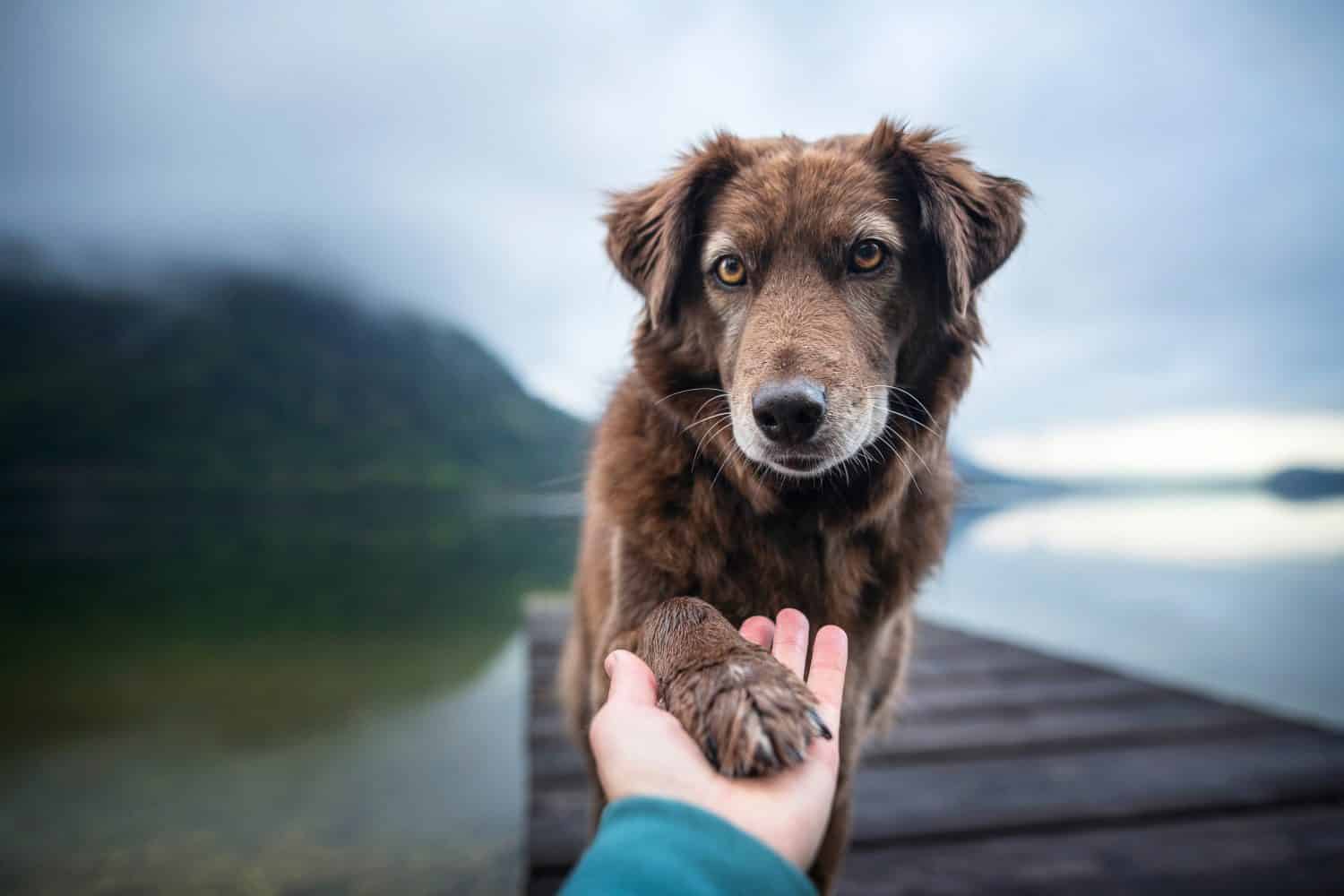Humans and dogs have shared their lives for thousands of years so it is not surprising that our canine friends have made their way into our sayings, phrases, and idioms. We use sayings about dogs to sum up a range of human emotions and experiences. Here are 23 famous sayings about dogs and what they actually mean.
As Sick as a Dog

©Javier Brosch/Shutterstock.com
The saying originates from the 1700s when dogs did not generally have the pampered lives that they do today. Sadly, many were chronically ill and it was the norm to see ‘sick dogs’ wandering around. So, if you look ‘as sick as a dog’, you are not looking very well!
In the Dog House
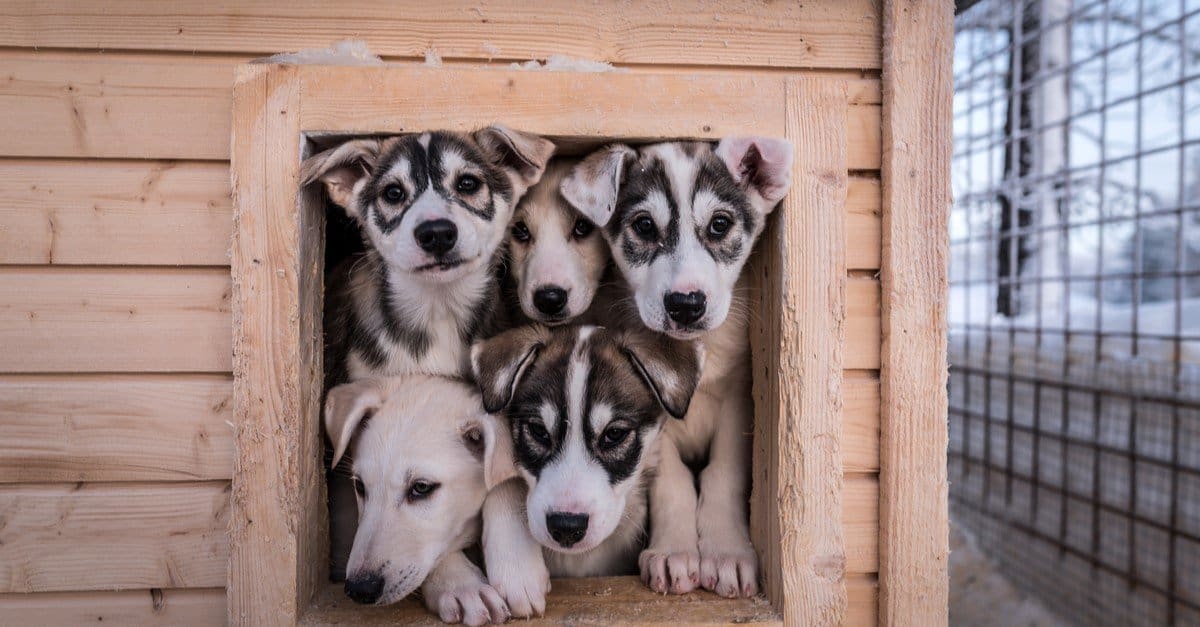
©Jana Caposova/Shutterstock.com
There are several different theories about the origins of this phrase but it basically means that you are in trouble or at least out of favor. Some people claim that it originates from the practice of banishing a dog to an outdoor kennel when they have done something wrong. Others connect it with the days of slave trading. Kennel style huts were built on the decks of slave ships to accommodate the crew and were called ‘dog houses’. Being in the ‘dog house’ was an uncomfortable situation.
Dog’s Breakfast

©chanonnat srisura/Shutterstock.com
This phrase dates back to a time before commercial dog food was widely available. Dog meals were a complete mess made up of whatever the family had left over. A ‘dog’s breakfast’ is therefore something that looks a mess or a situation, such as a meeting, that has gone badly. It has been used since the 1930s and may have originated in the U.K. or Australia.
Dog Days of Summer

©Todd Kreykes/Shutterstock.com
The link between this saying and our canine friends is quite tenuous. It arises from ancient Rome when hot summer days were called dies caniculares which translates as ‘dog days’. The Romans believed that the Dog Star (Sirius) which is the brightest star in the sky, also radiated heat to the Earth. The very hot summer days were therefore ‘dog days’ because they were created by the Dog Star.
Let Sleeping Dogs Lie

©Petra Richli/iStock via Getty Images
People use this phrase when you should leave things alone – especially a situation that is currently stable. It has been in use since the 13th century and appeared in Chaucer’s epic poem “Troilus and Criseyde” as “It is nought good a slepyng hound to wake.” If you live with an active and excitable pooch, this phrase needs no explanation!
Raining Cats and Dogs
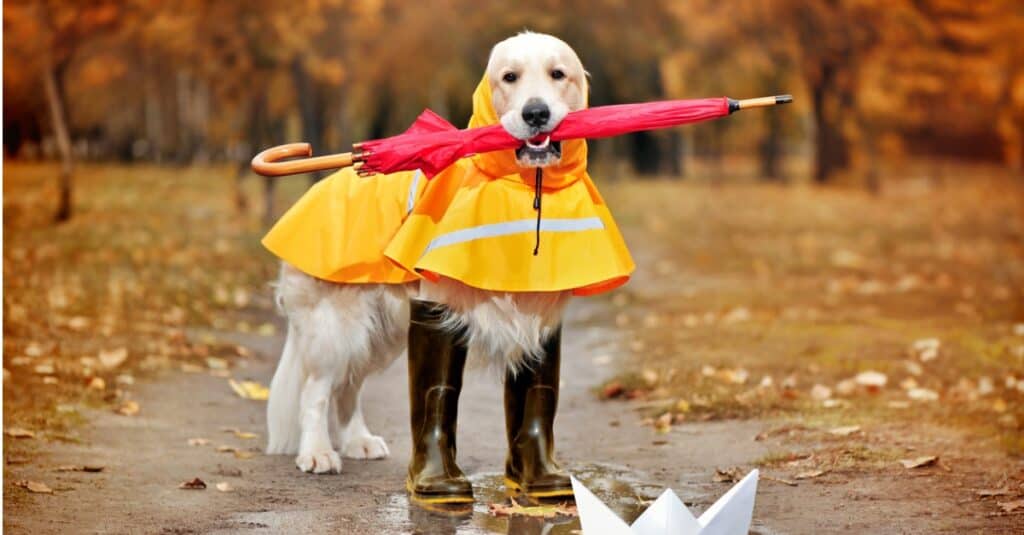
©depositphotos/iagodina - Original
There is a tragic origin to this common saying. During the 1800s, city streets had such poor drainage that cats and dogs were regularly drowned. A slight variation is that the poor creatures used to sleep in the eaves of houses and were washed out by heavy rainfall. Whatever the exact origin, it means that it is raining very heavily!
The Dog’s Danglies
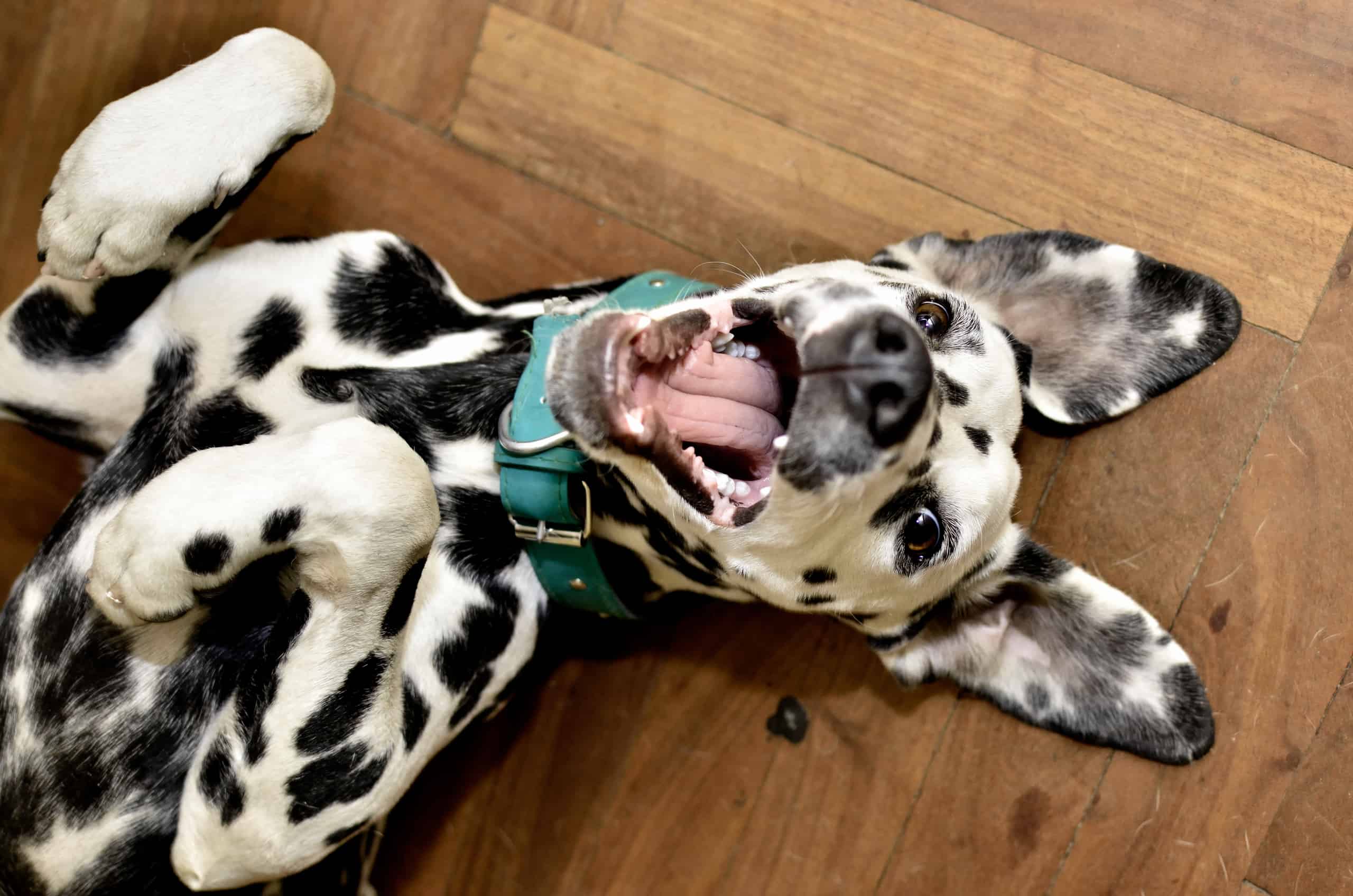
©patostudio/Shutterstock.com
This is a mainly U.K. slang term to describe something that is particularly good. There are several versions (some less polite than others) and much debate about its origins. Some people claim it evolved from other similar phrases such as ‘the cat’s whiskers’, ‘the bee’s knees’, and the sadly-lost ‘kipper’s knickers’. Others relate it to cockney rhyming slang or corruption of the term bog standard, which means average.
Working Like a Dog
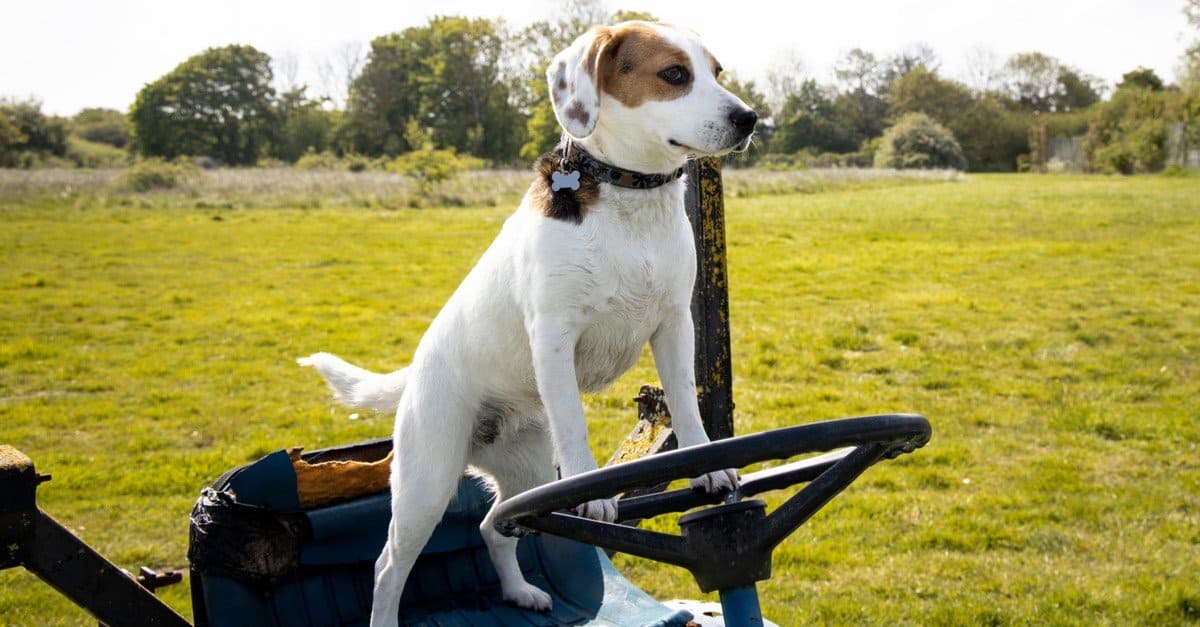
©JMSH photography/Shutterstock.com
Dogs have not always been pets – our ancestors expected their dogs to work hard. So, if someone is working like a dog they are putting in a lot of effort. We still use working dogs in the military, police, search and rescue, and to support people with disabilities. Dogs work without pay but at least these days they know they will get a decent meal. In the past they worked for scraps so ‘working like a dog’ can also mean you are working for little pay or appreciation.
Dog in the Manger
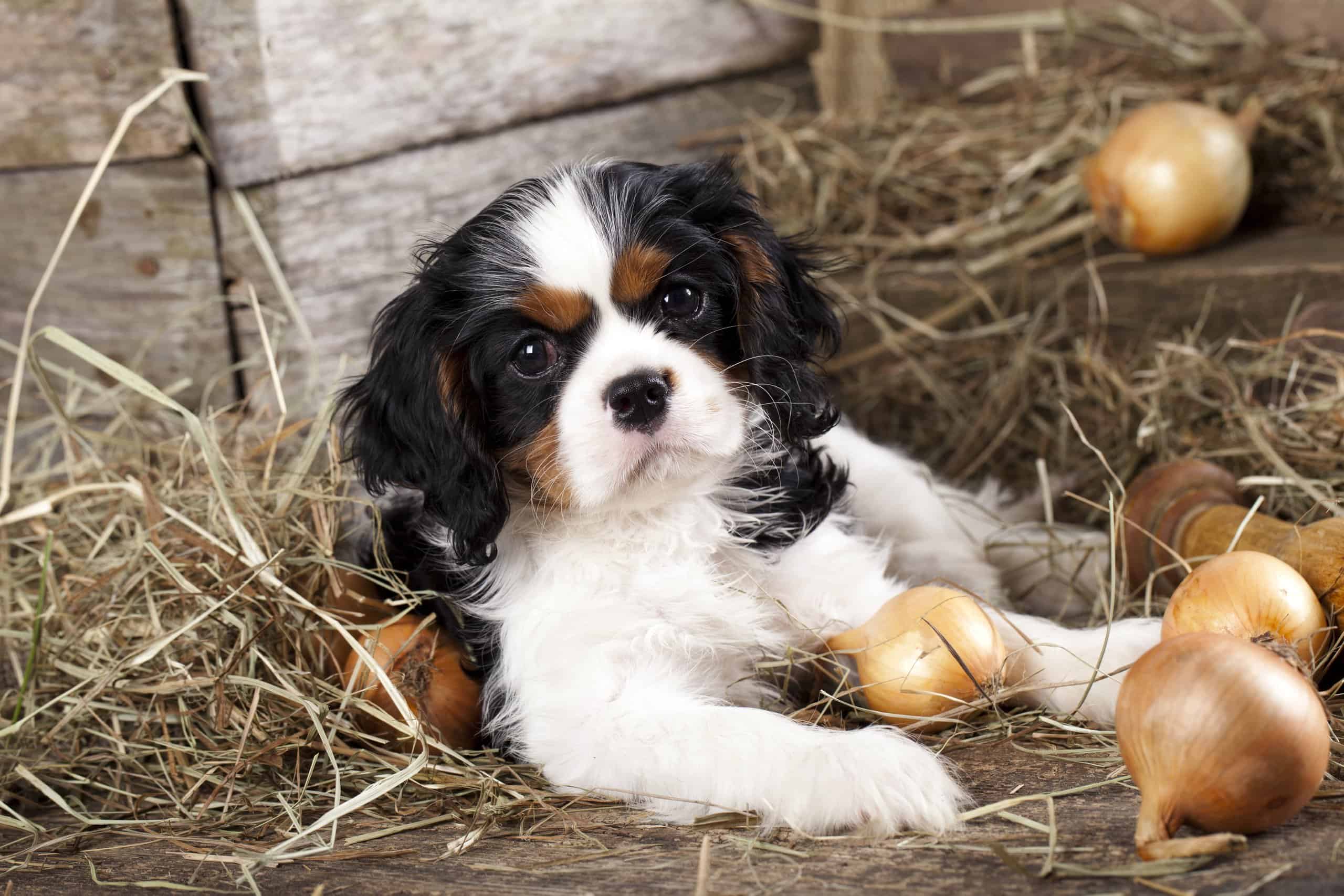
©Liliya Kulianionak/Shutterstock.com
A ‘dog in the manger’ is someone who prevents other people from enjoying something even though they do not want it themselves. It is an ancient saying that dates back to Aesop’s fables from the 1500s. The fable describes a snarling dog that stops some horses from eating fodder even though it does not want to eat it.
Gone to the Dogs

©ANDRII KHRIAKOV/Shutterstock.com
This is another ancient phrase that is used to describe things that have deteriorated or are past their best. It probably dates back to the sixteenth century when dogs were fed on scraps of food that were no longer palatable to humans.
Dog Eat Dog

©AB Photographie/Shutterstock.com
This is a prime example of an ancient phrase being corrupted to mean the opposite. The original Roman phrase was ‘Canis caninam non est’ which means “dog will not eat dog”. The word ‘not’ was dropped sometime in the 18th century and the phrase became popular in the 19th century. It now describes a negatively competitive environment.
Hair of the Dog
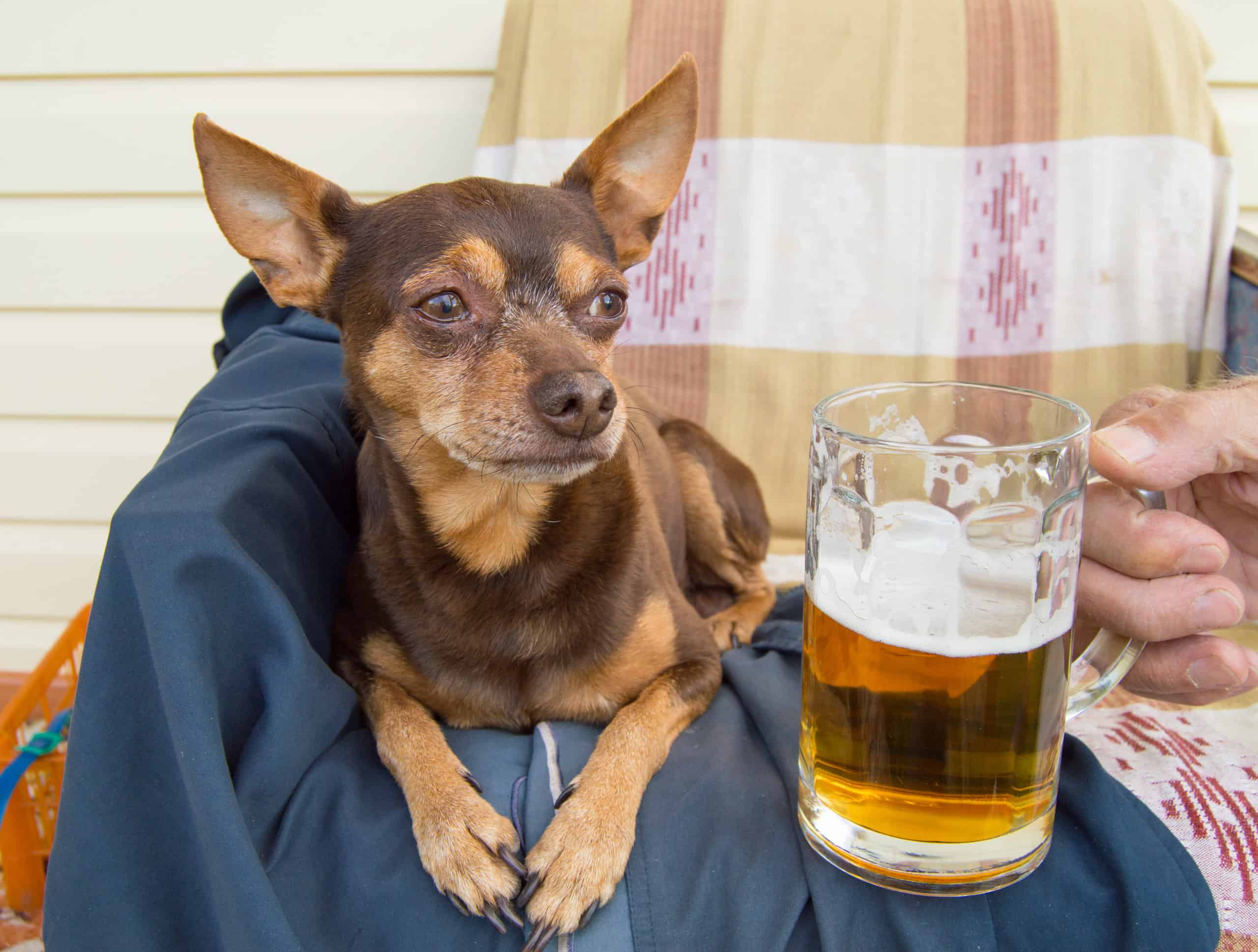
©Claire Lucia/Shutterstock.com
You may have used this to encourage someone with a hangover to drink some more alcohol but the origins have nothing to do with partying! In Medieval times, people were encouraged to actually take hair from a dog that had bitten them and put it into their wound. It was supposed to prevent infection and aid healing – even if the dog had rabies. Needless to say it did not work!
Dog Eared
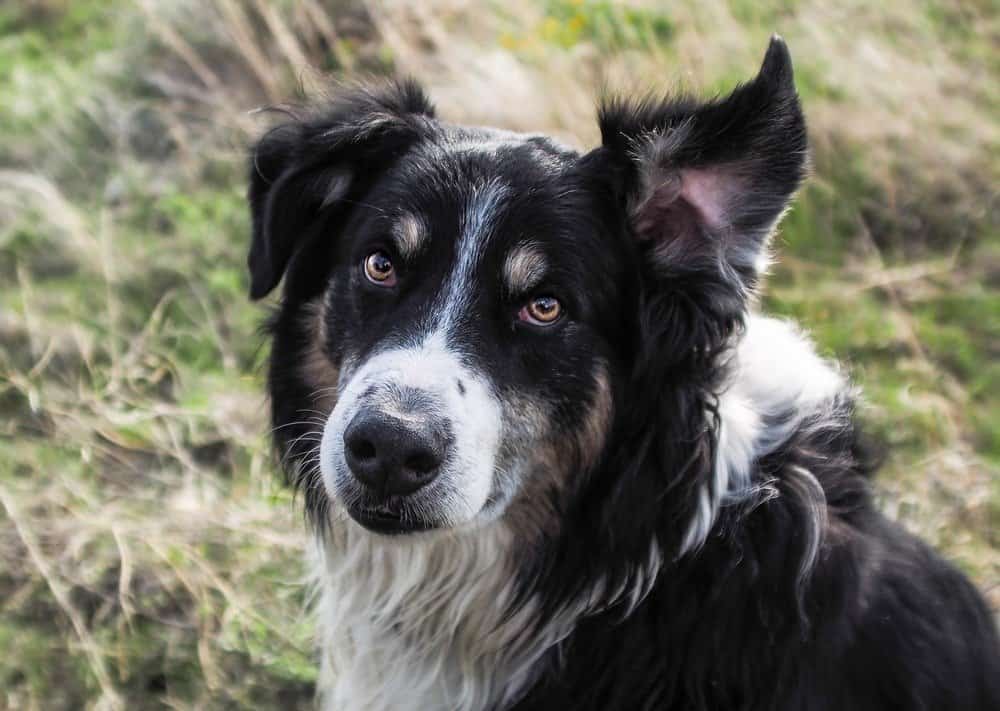
©Robert F Apple/Shutterstock.com
Have you ever opened a book only to find that a previous reader has folded down the top corner of the pages to mark where they had read to? Have a closer look and you will see that it looks a bit like a dog’s ear – the ones that can stand erect but flop over. The phrase is used to describe things that are well-worn and scruffy.
Barking up the Wrong Tree
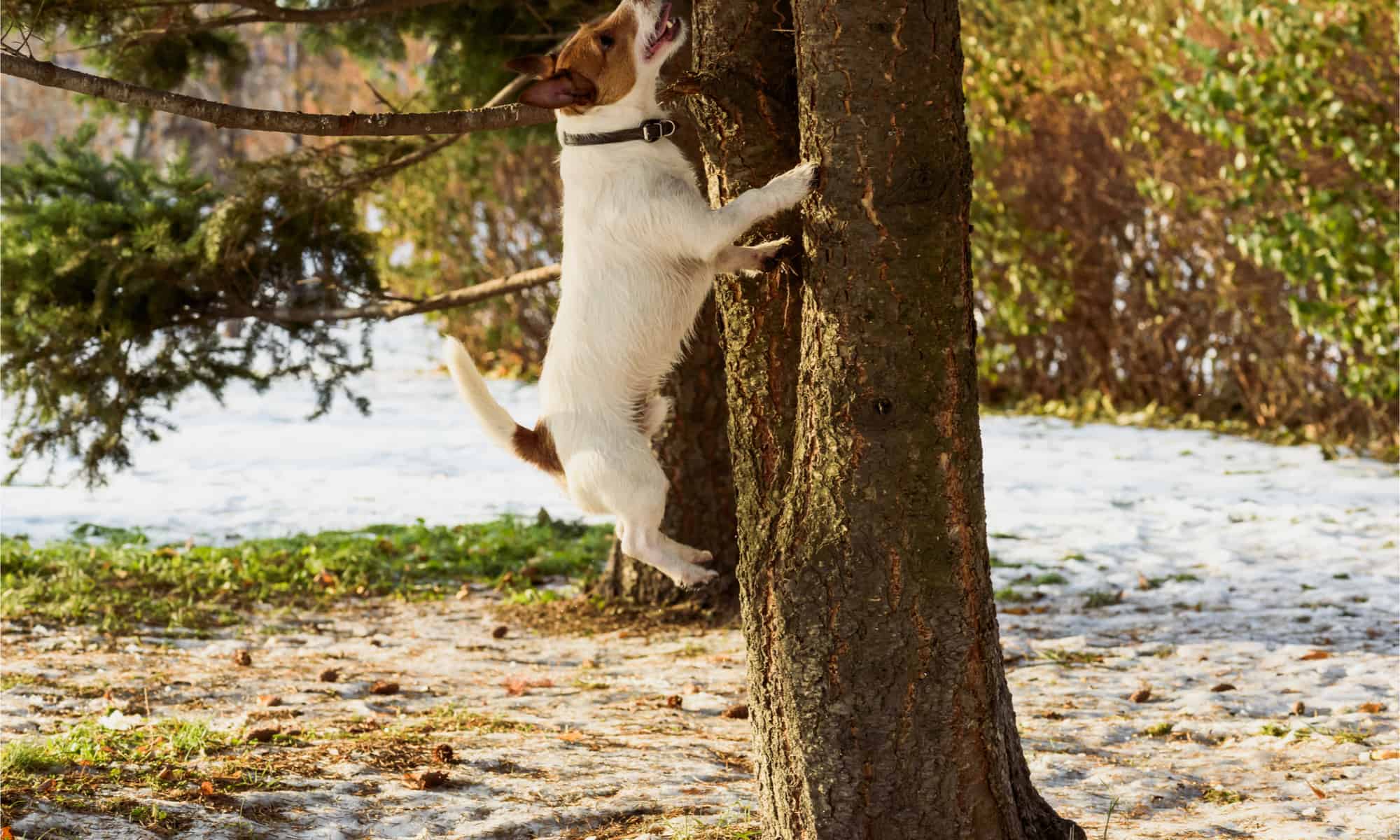
©alexei_tm/Shutterstock.com
Is your dog a squirrel or bird chaser? If they are, you have probably seen them chase a critter who bolts up a tree and soon transfers to another one via the top branches. Your dog is left on the ground – barking up the original tree without realizing it is the wrong one. The phrase means that someone has misunderstood something or has got something totally wrong.
Bark Worse Than Their Bite

©Shchus/Shutterstock.com
This is another phrase with Roman origins, namely the works of Roman historian Quintus Curtius. It was also in use as a 16th-century English proverb. It is used to describe a noisy, vocal threat that does not actually put you in danger of harm.
Puppy Love

©Nigmatulina Aleksandra/Shutterstock.com
In use since the 1800s, this phrase was used to describe the love that a young pup has for its owner. These days, it is used more widely to describe the love between two young people and was the title of the 1972 hit song by Donny Osmond.
Three Dog Night
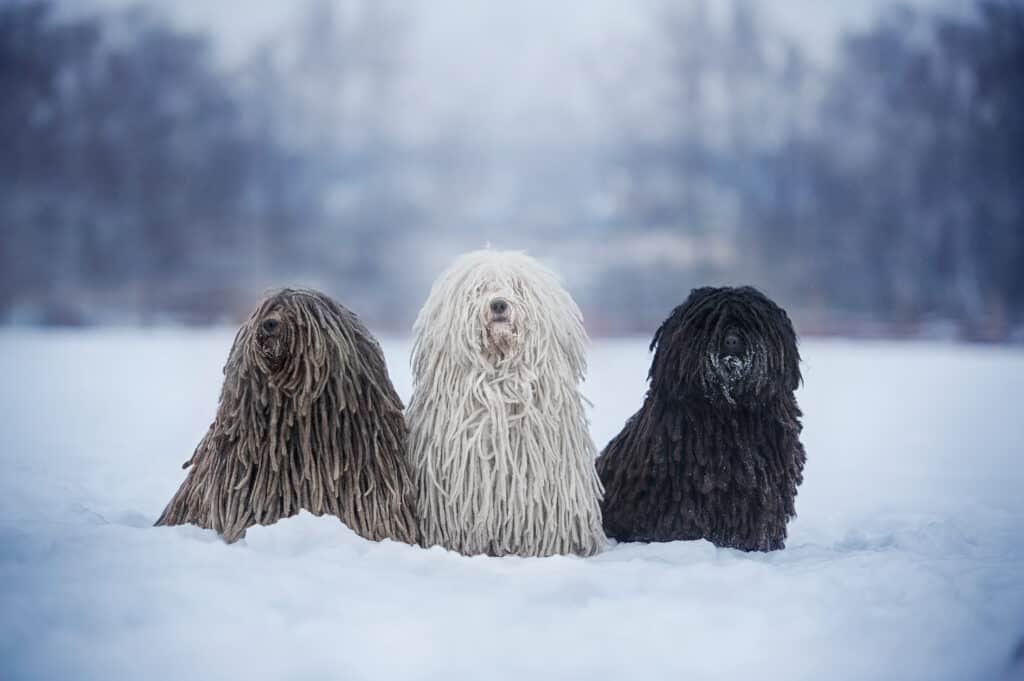
©BORINA OLGA/Shutterstock.com
This phrase may have originated in the Australian outback, Alaska or even Siberia. It refers to the custom of bringing dogs into your bed to keep you warm. One dog was usually enough but on very cold nights you needed three!
Dog With Two Tails
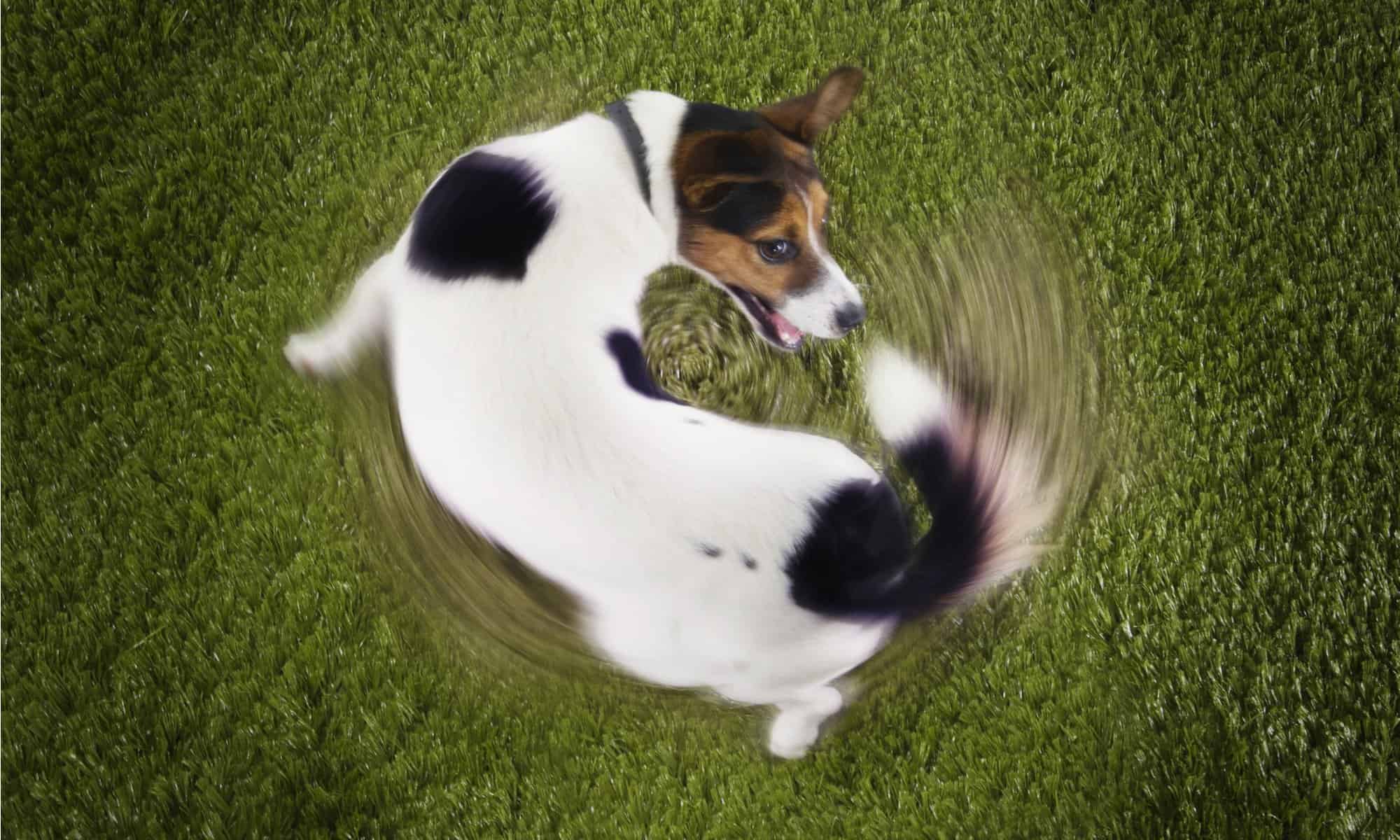
©sirtravelalot/Shutterstock.com
If you are like a dog with two tails you are very happy. This phrase originated in England and probably relates to the fact that happy and excited dogs wag their tails!
Run with the Big Dogs
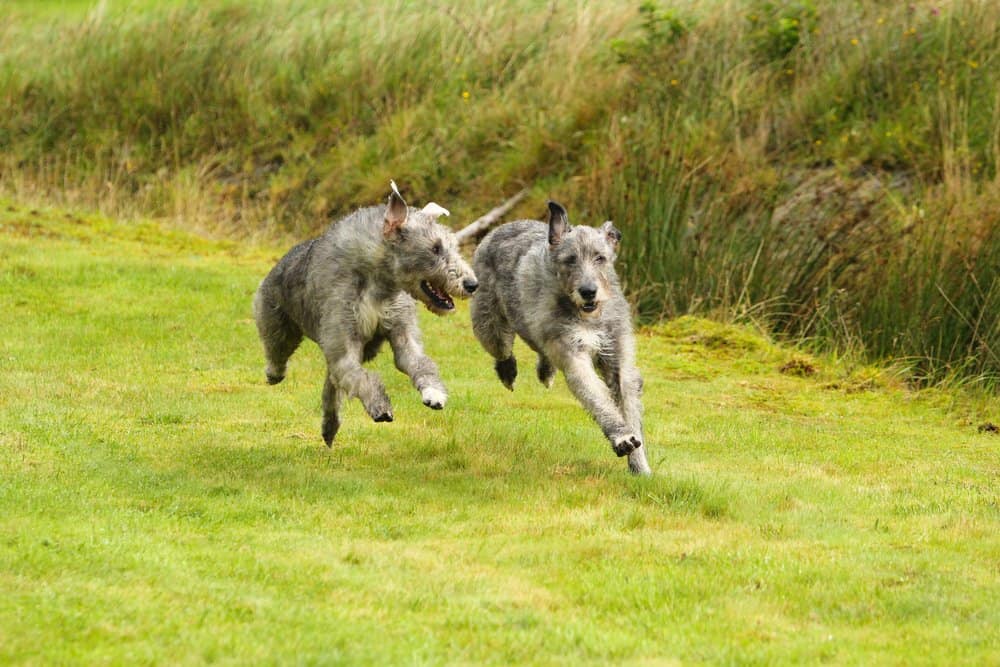
©Barbora Bridges/Shutterstock.com
Running with the bog dogs means that you can keep up with what others are doing. It can also mean that if you aren’t willing to suffer the consequences, you shouldn’t take the chances. It is a popular saying that probably originated in the Southern U.S.
You Can’t Keep a Good Dog Down

©KDAndow/iStock via Getty Images
This means that if you have what it takes, you will eventually be successful no matter what difficulties or problems you face. It is thought to be a derivation of the similar saying ‘you can’t keep a good man down’.
Life in the Old Dog Yet

©iStock.com/Iuliia Zavalishina
This generally means that even though a person (or more unusually a thing) is old, it can still serve a useful purpose and enjoy life. The term ‘old dog’ is used more widely to mean an older person.
You Can’t Teach an Old Dog New Tricks
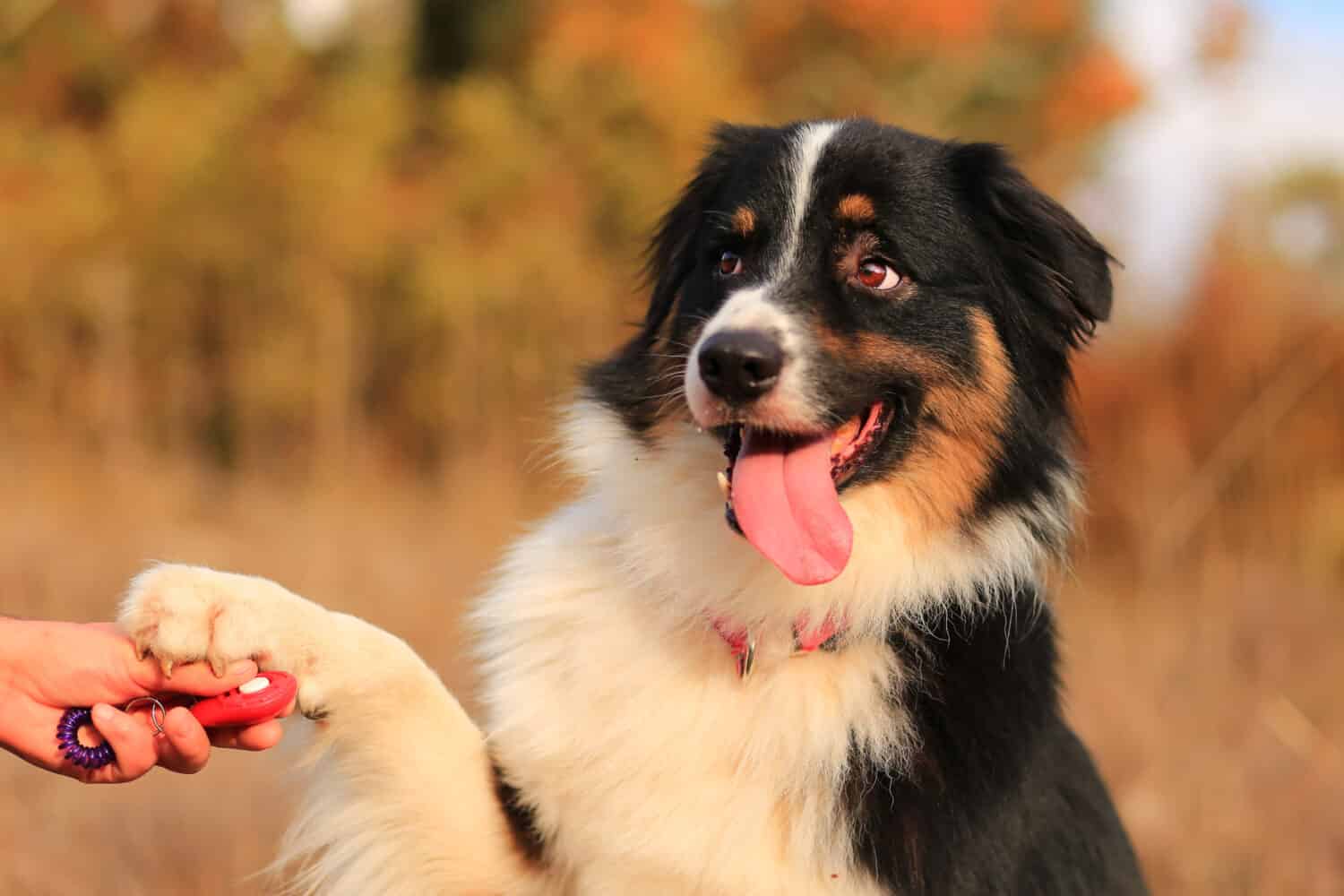
©Melounix/Shutterstock.com
This means that it can be harder to teach an older person new things or to get them to change their ways than a younger person. It originates from the fact that it is normally younger dogs who are taught tricks. It arose in either the 1500s or the 1700s but has been attributed to John Fitzherbert, Alexander Pope, and Heywood so take your pick!
The Tail Wagging the Dog
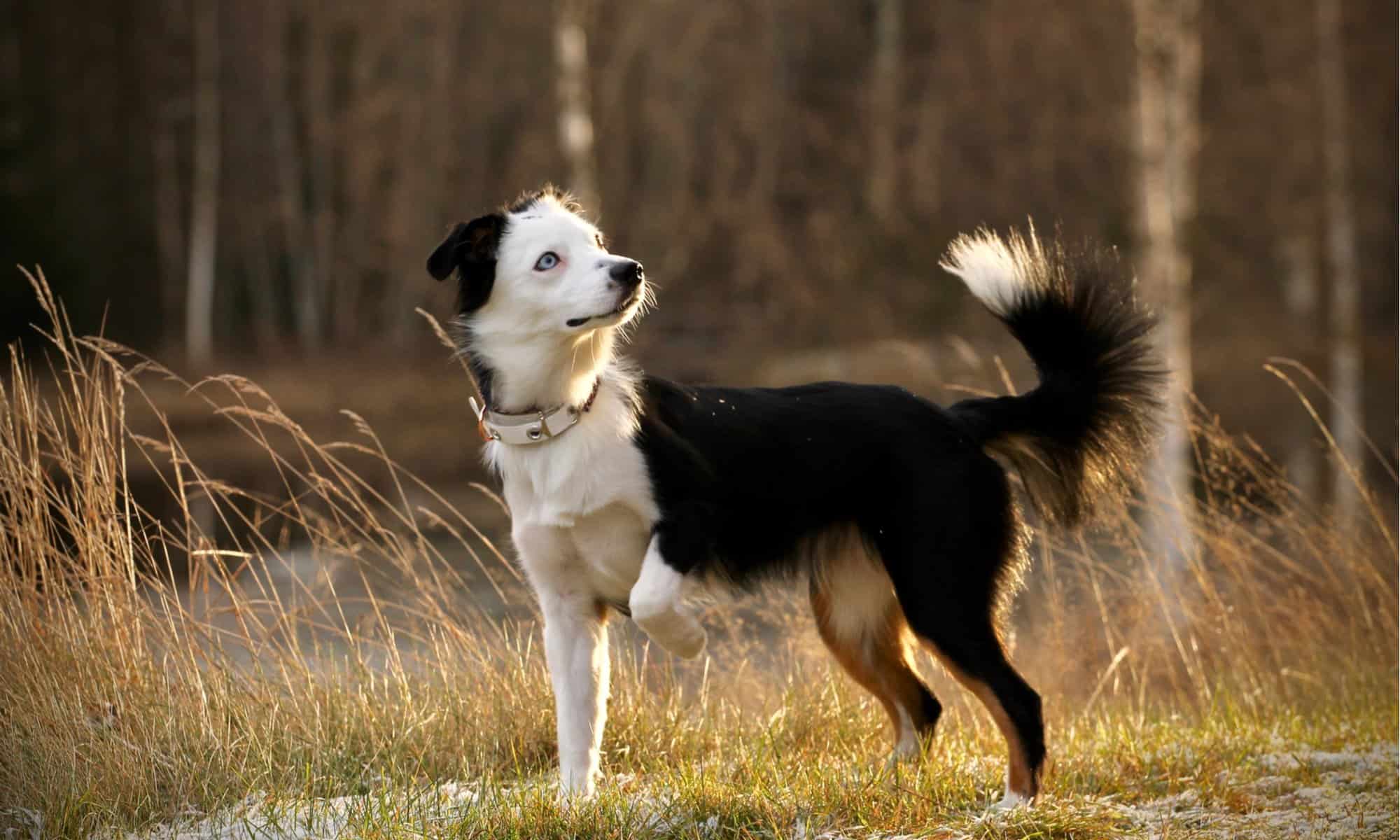
©LNbjors/Shutterstock.com
‘The tail wagging the dog’ means that something small is controlling something larger. It originates from dogs having such a waggy tail that their entire body moves. It arose during the 1800s in the U.S. when populist forces were controlling the government.
Ready to discover the top 10 cutest dog breeds in the entire world?
How about the fastest dogs, the largest dogs and those that are -- quite frankly -- just the kindest dogs on the planet? Each day, AZ Animals sends out lists just like this to our thousands of email subscribers. And the best part? It's FREE. Join today by entering your email below.
Thank you for reading! Have some feedback for us? Contact the AZ Animals editorial team.

